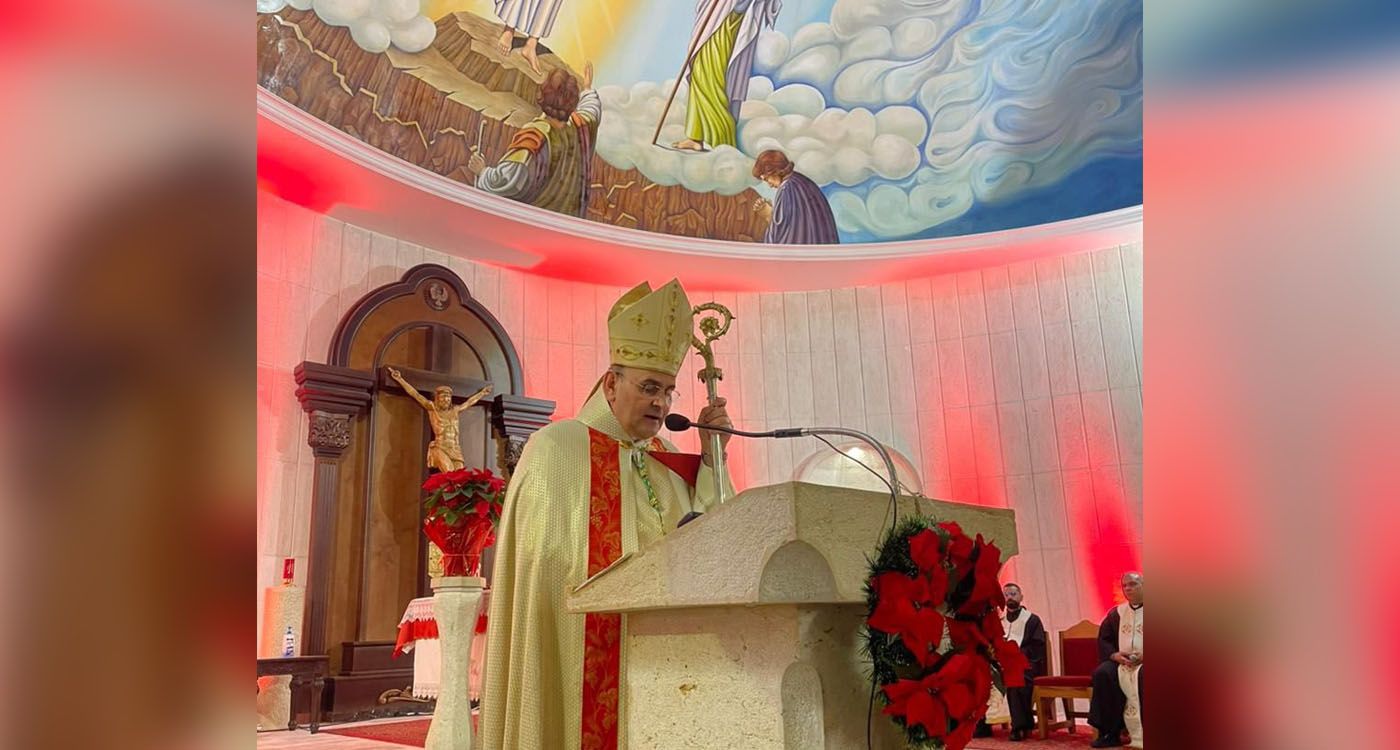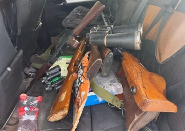
In a Lebanon cautiously stabilized by the implementation of UN Resolution 1701 and the fall of Bashar al-Assad's regime in Syria, Apostolic Nuncio Archbishop Paolo Borgia chose to celebrate Christmas in Rmeish (14,000 inhabitants) and Kley’a (2,500 inhabitants), two Maronite border towns that faced immense hardships during the 14-month war Hezbollah waged against Israel in support of Hamas, which spanned from October 8, 2023, to the ceasefire on December 8, 2024.
Thanks to their firm opposition to Hezbollah’s use of their territory and the vigilance of their able-bodied residents, both communities, despite being on the front lines, were spared direct targeting by Israeli forces. Nevertheless, the final months of the war brought significant challenges, as dangerous roads made the delivery of essential goods a perilous task.
“While we weren’t directly bombed,” noted Father Tony Elias, parish priest of Rmeish, “it doesn’t mean we weren’t afraid. Bullets struck our windows, terraces, walls and rooftops, while shells hit the outskirts of the town. Debris from intercepted missiles damaged six homes and destroyed a seventh. As you walk through the village, the cracked, disjointed and pierced walls are stark reminders of the war.”
The conflict’s economic fallout also deeply impacted Rmeish and Kley’a. “Nearly 10,000 olive trees in Rmeish’s fields were destroyed,” Father Elias noted. “Tobacco farming and beekeeping also suffered heavy losses. Two-thirds of Rmeish’s residents rely on agriculture for their livelihoods.”
According to Father Pierre Rahi, parish priest of Kley’a, both towns remain accessible by road without special authorization from the Lebanese army. However, the route passes through Nabatiyeh, where Israeli airstrikes destroyed the historic souk, a symbol of local heritage. “We drove through with heavy hearts,” said Archbishop Borgia. “The devastation was truly heartbreaking to witness.”
The Nuncio celebrated Midnight Mass in Rmeish and Christmas Day Mass in Kley’a, expressing joy at the sight of the communities coming together. “The church was full for Midnight Mass,” he remarked.
Archbishop Borgia highlighted the steadfast faith of the Lebanese people, their resilience in adversity and their unwavering sense of community. “It is inspiring to witness such tenacity and attachment to the land and Christian faith,” he said. “These are powerful signs of hope for Lebanon.”
“Our relationship with the Maronite Archbishop of Tyre is excellent,” acknowledged Father Elias of Rmeish. “But it is deeply reassuring to feel the Pope’s direct care.” Father Rahi of Kley’a added, “This marks the Nuncio’s sixth visit—a clear indication of a special directive.”
Archbishop Borgia spent the night at the monastery of the Lebanese Maronite Order (OLM), where he participated in a lively gift exchange and shared dinner with guests before celebrating Mass.
In his homilies, the Nuncio extended heartfelt words of comfort to all communities in southern Lebanon—those who remained, those displaced, those who lost their homes and those still unable to return. “I chose to celebrate this Christmas Eve Mass not only because Jesus was born at night, as the Gospel recounts, but also because the night represents the uncertainty of today and tomorrow, still filled with risks and challenges. Through my presence, I wish to affirm that in these challenging times, I stand with you, just as the Holy Father, whom I humbly represent, would.”
“The faith of Lebanese Christians is ancient and deeply rooted in this ‘holy land,’ once walked by Christ and his disciples,” he continued. “It is a cherished land you have steadfastly remained on, thanks to God, with pride in your heritage. This enduring faith keeps your hearts open to hope. As Pope Francis urges: ‘Never let anyone steal your hope. Never give up on a future that can always surpass the present. Believe in the future, strengthened by God’s support.’”



Comments